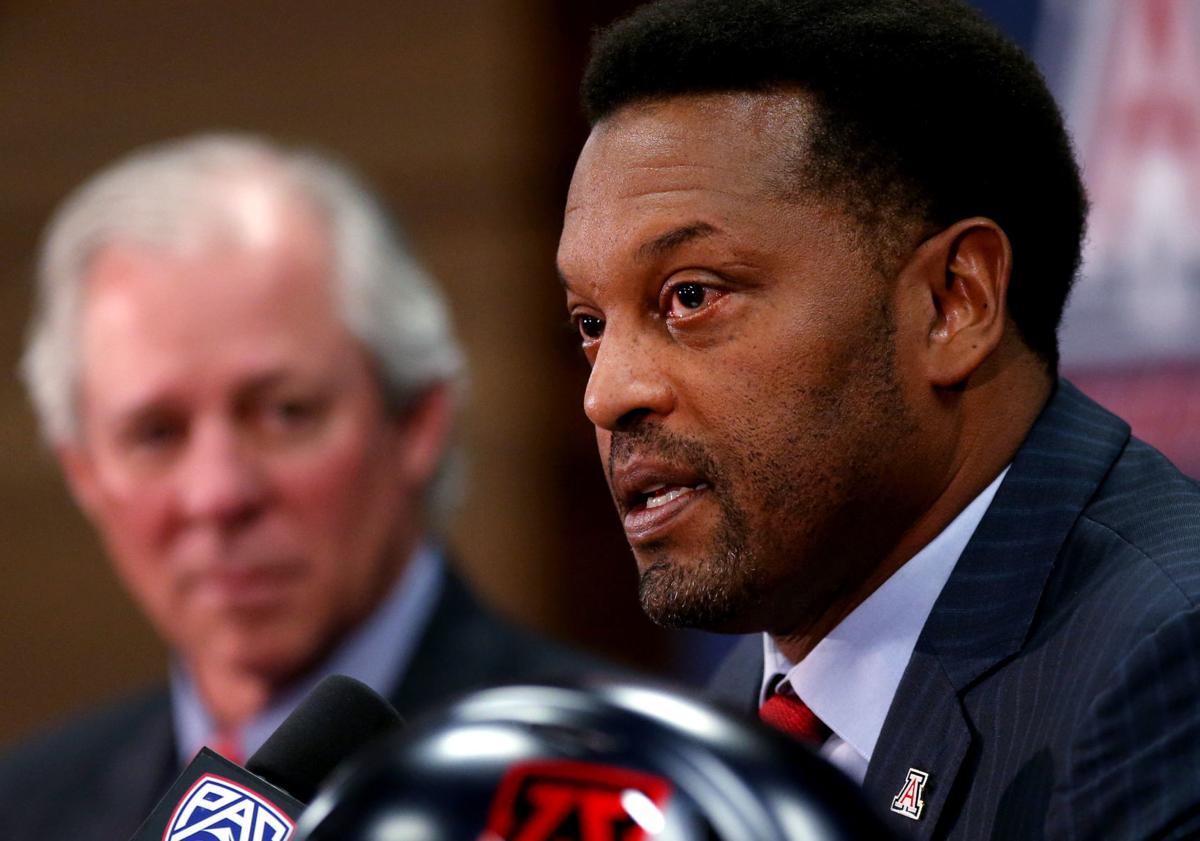I hate to be the bearer of bad news, but race is still a thing in America.
A few letters to the editor the Star received last week made me question this for a minute, but that momentary doubt quickly led to certainty. Race. Still a thing. The letters in question took Sports columnist Greg Hansen to task over his handling of the fact that new UA football coach Kevin Sumlin is African-American.
In a column last week, Hansen pointed out that the university didn’t hire its first black assistant football coach until 1971. And that in a conference that has employed 88 head football coaches since 1978, the year ASU and Arizona joined, Sumlin is only the eighth African-American hired. That for Arizona, Sumlin is the first black head football coach, and that he now leads a program that out of 171 assistant coaches employed in its history, only 28 were African-American.
Why the uproar? The letter writers were upset that Hansen had made Sumlin’s hire “about race.”
“I don’t remember the Star celebrating the hire of RichRod because he was white,” wrote one reader, referring to Rich Rodriguez, the definitely white and definitely fired former UA coach. “With all of the problems in the UA athletic department, they don’t need more,” said another reader, as if pointing out that Sumlin is black was just asking for trouble. And, “What pray tell does Kevin Sumlin’s race have to do with Mr. Sumlin’s qualifications and hiring as the new Arizona football coach?”
Most of the letters ended with a version of that question. What does race have to do with him being hired? Why is he being singled out for being black? They pointed out how Sumlin was more than qualified for the position, which he is, and how Hansen’s mention of race was either racist or what they’ve come to expect from a “left-leaning liberal paper.”
Hansen was not being racist, and pointing out inequality is not something owned by a right-or-left-leaning anything. In their condemnation , it is the writers who come off as misguided. By trying so hard not to see race, by pushing for coverage that ignores the obvious disparity of opportunity in favor of talking about everything but race, they fall into the trap of giving the effects of systemic racism a free pass.
Arizona hiring a black football coach does not mean racism or discrimination is over. It doesn’t prove that if you work hard enough and have talent you can reach your goals, regardless of the color of your skin. Hansen’s column helpfully notes that out of the 28 African-American assistant coaches who have worked for Arizona, only three were designated as coordinators — a vital part of being able to transition into being a head coach.
This is not to say the UA actively discriminates (it hired an African-American track coach in 1969 and was the first Division I school to have a black basketball coach, Hansen notes). It is simply a reflection of the slow progress that afflicts a country recovering not only from hundreds of years of believing that one race could own another, but also decade upon decade of overt and covert oppression and disenfranchisement.
I can’t read minds, but it’s evident the letter writers upset at Hansen are having a hard time acknowledging that we are far from ending this particular discussion. Perhaps some think that if you ignore it, then it will go away, that their belief in racial equality will make it so. Maybe others feel that talking about race is just another salvo in the culture wars, that the mere mention of it is divisive and some sort of slam against white people. It’s not.
We continue to talk about diversity as a strength to push back against our history of racism and discrimination. We keep seeing race as a problem because for millions of Americans, race continues to be front and center in their daily lives.
Maybe someday having a Latino head Microsoft, or an Asian-American box office star, or a black woman sitting in the oval office will be old hat. Until then, in Sumlin being named head coach at Arizona we see how far we’ve come. In Hansen having to write about what a unique position Sumlin is in, we see how far we have yet to go.





